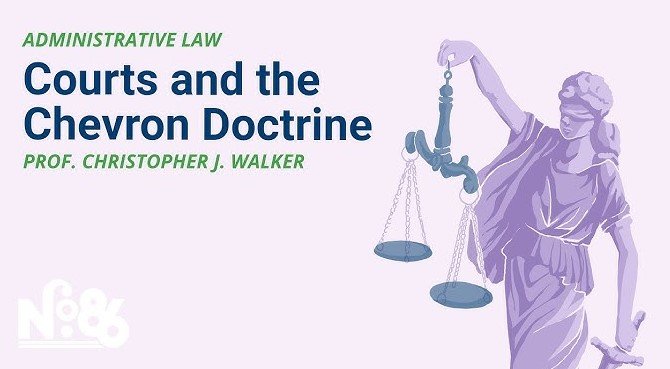For over 30 years, U.S. courts have followed a principle known as “Chevron deference,” which grants administrative agencies the authority to interpret ambiguous statutes, as long as their interpretations are reasonable. Named after the landmark decision in Chevron U.S.A., Inc. v. Natural Resources Defense Council, Inc., 467 U.S. 837 (1984), this doctrine has significant implications for how courts address agency interpretations, particularly in government contracting.
Recent Case Raises Questions on Chevron Deference in Contract Terms
Government contractors frequently encounter Chevron deference in the context of statutes and regulations governing their performance. But should this deference extend to terms within government contracts themselves? In simpler terms, should courts defer to an agency’s interpretation of an ambiguous term within a contract it is a party to? This was the primary question in the recent Scenic America, Inc. v. Department of Transportation, No. 16-739, 583 U.S. ___ (Oct. 16, 2017).
Although the Supreme Court denied certiorari in Scenic America, Justice Gorsuch, joined by Chief Justice Roberts and Justice Alito, issued a notable statement on the issue, questioning whether Chevron deference should apply in this context.
Traditional Contract Rules vs. Chevron Deference
Justice Gorsuch highlighted that courts typically rely on traditional rules of contract construction to determine the meaning of ambiguous terms in contracts. These principles include the “contra proferentem” rule, which states that ambiguous terms are interpreted against the drafter—in this case, the government agency.
Split in Appeals Courts on Applying Chevron to Contracts
Courts are divided on whether these traditional contract rules should be replaced by Chevron deference when a government agency is a party to the contract. In Scenic America, the D.C. Circuit applied Chevron deference in favor of the Department of Transportation’s interpretation of its own contract. However, other circuits have concluded that Chevron deference has no place in contract interpretation. For instance, Justice Breyer, in a First Circuit opinion before joining the Supreme Court, declined to apply Chevron to contract disputes in Meadow Green-Wildcat Corp. v. Hathaway, 936 F.2d 601, 603-05 (1st Cir. 1991).
The Federal Circuit and Chevron Deference in Contracts
The Federal Circuit, which handles most federal contract disputes, has suggested that Chevron deference may not apply in this context. It has emphasized that government contracts are subject to general contract law. In Turner Constr. Co. v. U.S., 367 F.3d 1319, 1321 (Fed. Cir. 2004), the Federal Circuit held that ambiguities should be resolved against the drafting party (the government), affirming the use of contra proferentem.
District courts and regional circuit courts occasionally consider agency interpretations of their contracts, particularly when disputes involve third parties or are ancillary to other claims. For example, in Scenic America, a non-profit organization disputed the Federal Highway Administration’s interpretation of federal-state agreements related to billboards on interstate highways.
Justice Gorsuch’s Critique of Chevron Deference
In Scenic America, Justice Gorsuch questioned the rationale for applying Chevron deference to agency contract disputes. He asked, “what’s the case for supposing that Congress implicitly delegates to agencies the power to adjudicate their own contractual disputes?” His skepticism is unsurprising; he has previously criticized Chevron deference for concentrating excessive federal power in administrative agencies, which he argues may conflict with the Constitution’s framework.
In Gutierrez-Brizuela v. Lynch, 834 F.3d 1142, 1149 (10th Cir. 2016), Justice Gorsuch labeled Chevron deference “a judge-made doctrine for the abdication of the judicial duty.” He pondered whether justice might be better served if Chevron were overturned, suggesting that eliminating it could better align with constitutional principles.
What Lies Ahead and Strategic Considerations for Contractors
The statement from Justice Gorsuch and two other justices signals a potential shift. We may see future litigants framing the issue more directly in petitions to the Supreme Court. For government contractors, the uncertainty surrounding Chevron deference in contract disputes means that outcomes may vary by jurisdiction. As this area evolves, contractors should carefully analyze how this legal landscape may impact their contracts.
For strategic guidance on navigating these complex issues, contact our attorneys or any member of our Government Contracts practice. For more news keep visiting technobuzz.

